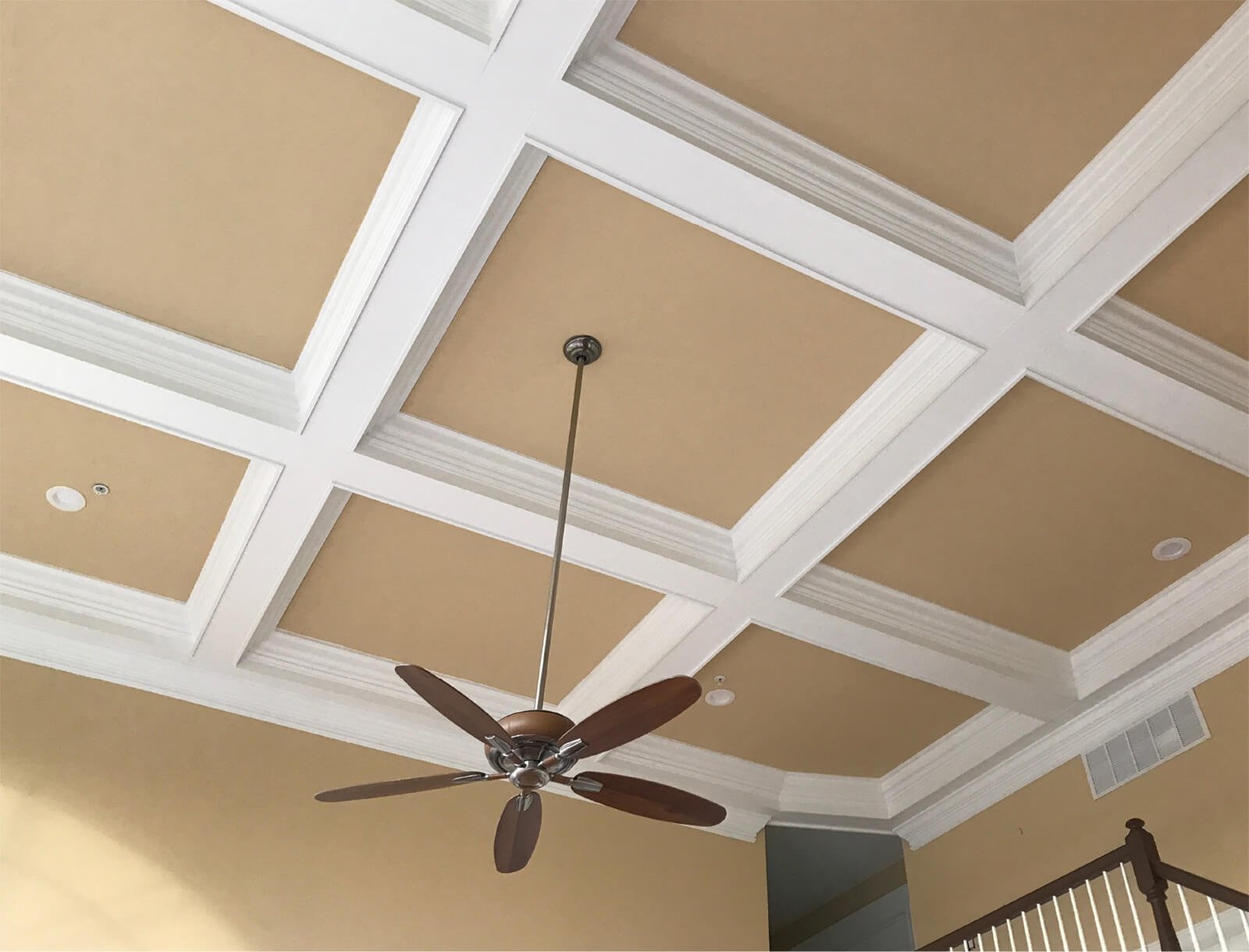Those who want to buy homes but can’t quite afford them now have another option: rent-to-own. There are substantial dangers associated with this arrangement, despite the fact that it can provide advantages like greater adaptability and a way to the property for folks with weak credit.
This article will discuss the pros and cons of rent-to-own homes so that you can make a well-informed decision. We’ll go through everything you need to know about rent-to-own agreements, from the risk of financial abuse to the difficulty in understanding the terms and conditions.

Benefits of Rent-to-Own Homes
A rent-to-own arrangement gives tenants the chance to buy the house they’re renting once a certain number of payments have been made. Those with low incomes or less-than-perfect credit histories now have another option for homeownership; they can rent to buy instead. The advantages of rent-to-own housing include the following:
Own a Home With Bad Credit or Low Savings
One of the best things about rent-to-own homes is that everyone, regardless of their financial standing, can have a shot at home ownership. Many folks can’t get conventional mortgages because they either have poor credit or can’t afford a sizable down payment.
By living in the property they eventually want to buy on a rent-to-own basis, tenants can improve their financial standing and save toward a down payment.
Payments under a rent-to-own agreement are often higher than those under a standard lease. These payments are often divided in two ways: the first part goes toward paying the rent, and the second part goes toward saving for a down payment on a property.
Renters who pay on time each month demonstrate to potential lenders that they are financially responsible and can be trusted with borrowed money.
Try Out the Home Before Buying It
One advantage of rent-to-own homes is that renters can live in the house for a while before deciding whether or not to buy it. Before committing to a longer lease, tenants can acquire a sense of the house, the neighborhood, and the surrounding area.
If there are any problems with the house, the tenants will have plenty of time to find out about them during the renting period. Renters can save both time and money by making the landlord accountable for resolving any problems that arise.
Fixed Purchase Price That is Usually Below Market Value
The purchase price of a rent-to-own house is usually set at the outset of the renting tenure. For renters who would like to buy a property but don’t have enough money for a conventional mortgage, this purchase price can be a huge boon.
Renters are shielded from the housing market’s ups and downs by the purchase price’s stability. Renters can save money in the long term if the housing market rises because they will be able to buy the home at the agreed-upon price.
Flexible Move-in and Payment Options
Rent-to-own homes also give tenants a lot of leeway in terms of when they may move in and how they can pay for the home. In contrast to the rigid timeframe and substantial down payment required by conventional mortgages, rent-to-own homes allow tenants to move in whenever they’re ready.
Payment options are typically more versatile in rent-to-own arrangements. Tenants can usually work out with landlords a payment schedule that suits them, such as weekly or biweekly installments. Renters who don’t have a consistent monthly income may benefit from this.
Risks of Rent-to-Own Homes
While there are many advantages to living in a rent-to-own home, renters should also be mindful of the potential drawbacks. Some of the dangers of buying homes under rent-to-own are as follows.
Higher Monthly Payments Than Traditional Rentals
Monthly payments for rent-to-own homes are typically greater than those for standard rentals. This is so because a portion of each payment is put toward a down payment on the house. So, tenants may struggle to maintain the increased payments if their financial circumstances change suddenly.
If You Don’t Buy the Home, You Could Lose Money
The renter also runs the risk of losing money if they decide not to buy the house at the end of the rent-to-own period. Rent payments made toward a down payment may be forfeited if the renter decides not to purchase the property at the end of the rental period.
When getting into a rent-to-own agreement, renters should carefully assess their financial status and their capacity to commit to purchasing the house.
Responsibility for Maintenance and Repairs While Renting
Tenants in rent-to-own homes are typically expected to handle routine upkeep and minor repairs. Renters in a rent-to-own arrangement may be liable for upkeep and repairs that would normally fall within the purview of the landlord in a standard rental arrangement.
Tenants who lack the knowledge or means to do necessary maintenance and repairs may find this to be an overwhelming responsibility. When getting into a rent-to-own agreement, tenants should give serious thought to the commitments that will be required of them.
Risk of Being Scammed by Unscrupulous Landlords
Finally, unscrupulous landlords may prey on renters who are interested in buying a rent-to-own home. Tenants should be wary of engaging in a rent-to-own agreement without first thoroughly researching the landlord to verify they are dealing with a trustworthy individual.
Tenants should read the fine print, paying special attention to the rental period, the total cost, and any additional fees or levies. They should also talk to a real estate lawyer or financial expert to make sure the terms are acceptable and fair.
How to Protect Yourself from Risks
There are a few precautions you may take if you’re thinking about purchasing a home on the rent-to-own market:
Read the Rent-to-Own Home Agreement Before Signing
It’s important to read a rent-to-own agreement thoroughly and make sure you’re comfortable with all the terms and circumstances before signing. Know what you’ll be paying and when, how long you’ll be renting, who will be responsible for what repairs, and what other costs might arise.
If there are any parts of the lease you don’t fully grasp, be sure to clarify them with your landlord or seek the advice of a real estate lawyer or financial counselor.
Consult With a Real Estate Attorney
You may want to consult a real estate lawyer before entering into a rent-to-own agreement. A real estate lawyer can assist you to make sense of the fine print and check that everything is above board.
They will also be able to give you advice on any legal matters that may come up during the lease or when you are ready to buy the home.
Check the Property and Landlord Before Signing
Do your homework on the property and the landlord before signing a rent-to-own deal. This involves checking the landlord’s reputation and the property’s history for red flags like liens or unpaid bills.
To make a well-informed choice, it’s a good idea to do research, whether it’s online reviews, talking to former tenants or neighbors, or consulting a real estate agent.
For Title Defects, Buy Title Insurance
If any problems with the property’s title occur while you’re renting it out or planning to buy it, title insurance can protect you from financial loss. Problems with ownership, liens, or other controversies in the legal system might all affect your ability to purchase the home.
You should protect yourself from potential losses during the lease period and at the time of purchase by investing in title insurance.
Factors to Consider Before Signing a Rent-to-Own Agreement
Keep the following in mind before signing a rent-to-own contract to make sure everything goes smoothly:
A. Financial Considerations
- Monthly payments: Check your monthly budget to make sure you have enough money for the rent, additional fees, and down payment.
- Down payment: Find out if you can afford the down payment, which could be a set amount or a percentage of the home’s price.
- Option fee: There are some contracts that call for a nonrefundable option fee upfront. Verify that this is a reasonable sum to pay.
- Rent premium: Check to see if the rent premium, or the extra amount you’re expected to pay above and beyond your regular rent, is affordable for you.
- Purchase price: Check to see if the purchase price is reasonable and in line with current market conditions.
- Financing: Think about how you will pay for the property if you need a mortgage or other finance down the road.
B. Property Considerations
- Location: Consider the property’s closeness to places of employment, schools, and conveniences.
- Condition: Do a comprehensive inspection of the property to determine its existing condition and the extent of any necessary repairs or modifications.
- Value: Compare the property’s worth to that of other nearby properties to see if it’s a good investment.
- Appreciation potential: Think about the future possibilities for your property’s worth to increase.
- Homeowners Association (HOA) rules: If an HOA is in effect, familiarize yourself with its rules and regulations and make sure you can follow them.
Factors to Consider Before Signing a Rent-to-Own Agreement
Before signing a rent-to-own agreement, consider the following factors to ensure a smooth and satisfactory experience:
A. Financial Considerations
- Monthly payments: Ensure that you can comfortably afford the monthly payments, including rent, additional fees, and any contributions towards the purchase price.
- Down payment: Determine if you can afford the required down payment, which may be a percentage of the home’s purchase price or a fixed amount.
- Option fee: Some agreements require an upfront, non-refundable option fee. Make sure you can afford this payment.
- Rent premium: Evaluate if the rent premium, which is the portion of your monthly rent that goes towards the purchase price, is reasonable and within your budget.
- Purchase price: Assess if the agreed-upon purchase price is fair and in line with market trends.
- Financing: Consider your ability to secure a mortgage or other financing when the time comes to buy the property.
B. Property Considerations
- Location: Evaluate the location of the property, including its proximity to work, schools, and amenities.
- Condition: Inspect the property thoroughly to assess its current condition and any needed repairs or renovations.
- Value: Determine if the property is a good investment by comparing its value to similar properties in the area.
- Appreciation potential: Consider the potential for property value appreciation in the future.
- Homeowners Association (HOA) rules: If applicable, understand the rules and regulations of the HOA and ensure you can comply with them.
C. Landlord Considerations
- Reputation: Research the landlord’s reputation, including online reviews and feedback from previous tenants.
- Responsiveness: Ensure the landlord is responsive to maintenance requests and other concerns.
- Trustworthiness: Verify the landlord’s trustworthiness by checking their background, credit history, and legal records.
- Agreement terms: Review the rent-to-own agreement carefully and ensure it includes clear terms for rent payments, property maintenance, and the purchase process.
D. Personal Considerations
- Long-term plans: Think over the rent-to-own plan in light of your bigger picture, including your plans for the future of your career, your family, and your finances.
- Flexibility: Think about what kind of housing flexibility you require and whether a rent-to-own deal may provide it.
- Commitment: Think carefully about whether or not you’re truly committed to staying in the property for the duration of the lease and, ultimately, buying it.
Be sure you understand the terms and requirements of a rent-to-own arrangement by consulting with a real estate attorney, financial advisor, or real estate professional before signing anything.
Comparison with Traditional Homebuying and Renting
Comparison of Costs and Risks with Traditional Homebuying
There are a number of expenses and potential hazards associated with purchasing a home. The down payment is typically the largest out-of-pocket expense when purchasing a home the conventional way.
In addition, there are closing costs, which can add up to two percent to five percent of the purchase price and consist of things like the home inspector’s fee, the appraiser’s fee, the title search fee, and other miscellaneous expenses. The costs of taxes, insurance, and maintenance all fall on the homeowner and can add up to a sizable chunk of change over time.
There is always a chance that the home’s value would decrease after purchase, leaving the buyer with a debt that is greater than the home’s market value.
Being in this position is referred to as “underwater” on your mortgage. It is not uncommon for homeowners to fall behind on their mortgage payments due to unforeseen expenses associated with maintenance and improvement.
Traditional Renting Pros and Cons
There are a number of advantages to the more conventional method of renting, including mobility and lease term customization. Tenants do not shoulder the financial burden of homeownership responsibilities including taxes, insurance, and upkeep. Tenants also need not worry about the property depreciating in value or incurring unforeseen maintenance fees.
Traditional renting, however, is not without its flaws. Tenants have no stake in the property and no gain from any future appreciation. In addition to possible rent hikes, they may be restricted in how they can alter the property for their own use.
Choosing the Best Solution for Each Situation
One’s financial status, way of life, and long-term goals should all be considered while deciding whether to rent or buy a home. Traditional homebuying may be preferable if you have a secure income, are planning to remain in the area for an extended period of time, have a sizable down payment saved up, and have decent credit.
On the other hand, renting could be preferable if you value mobility and independence more than the responsibilities of property ownership. Before settling on a course of action, you should weigh the advantages and disadvantages of both choices.
How to Avoid Typical Rent-to-Own Scams
The financial losses incurred by victims of rent-to-own home scams can be substantial. Several typical cons and how to spot them are detailed below.
Examples of Common Scams
- Lease-option scams: A lease-option scam occurs when a landlord tells a renter that the tenant can buy the property at some point in the future, but the lease is written in such a way that it is extremely difficult for the tenant to actually acquire the property. The tenant may be forced to pay more than fair market rent without ever having the option to purchase the property.
- Lease-purchase scams: The tenant is guaranteed the option to buy the property at the conclusion of the lease period, but the lease-purchase contract is written so that it is impossible for the tenant to get a mortgage or complete the purchase. This could involve finance requirements or costs that are unrealistic.
Red Flags to Watch Out
- Overly aggressive landlords: A red flag could appear if the landlord comes across as aggressive or forceful throughout the sales process. Every rent-to-own deal worth it’s salt will be a win-win situation for both parties.
- Unrealistic promises: Be aware of landlords who offer drastically reduced rent or who say you may buy the house for little or no down payment. Such guarantees are usually a red flag for a possible scam.
Tips on How to Avoid Getting Scammed
- Do your research: Do your homework on the property, the landlord, and the terms of the rent-to-own deal before signing anything. Read up on the place online, talk to some former renters, and get some professional advice.
- Get everything in writing: Make sure that the lease period, purchase price, and any fines or penalties for breaching the agreement are all spelled out in writing.
- Seek legal advice: Before signing a lease option or purchase agreement, it is smart to get legal advice. They will verify that you are not being taken advantage of and will help you grasp the contract’s contents.
- Check your credit: Check your credit record to ensure you will be able to get a mortgage when the time comes if you intend to buy the property. You could lose your investment in the house if you are denied a mortgage.






